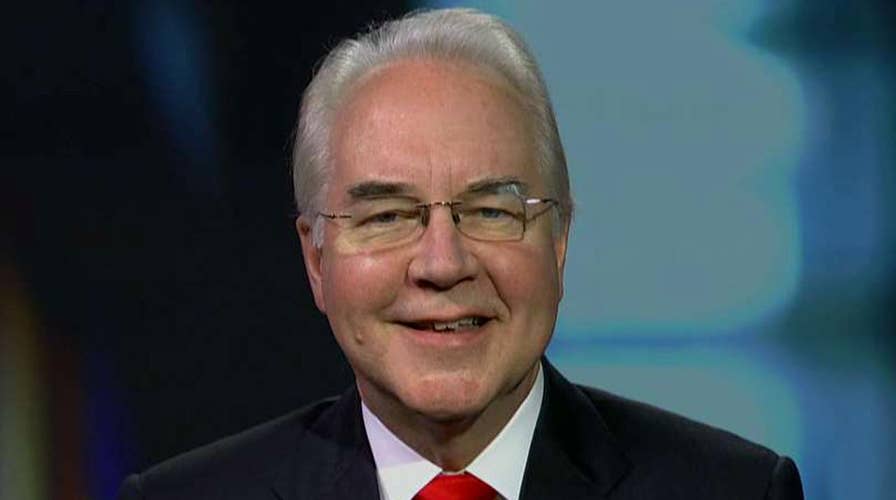Price: Health care bill will lower costs, increase coverage
Secretary of Health and Human Services speaks out ahead of House vote on 'America's Newsroom'
House Republicans voted Thursday to pass the American Health Care Act – their answer to ObamaCare.
The bill has gone through some changes since an earlier version was pulled from the floor in March in the face of flagging support.
Here’s what’s the bill does:
-Ends tax penalties, under the original Affordable Care Act, for individuals who don’t buy insurance coverage and larger employers who don’t offer coverage. Instead, insurers would apply a 30 percent surcharge to customers who've let coverage lapse for more than 63 days in the past year.
-Ends tax increases on higher-earning people and a range of industry groups including insurers, drug makers and medical device manufacturers.
-Cuts the Medicaid program for low-income people and lets states impose work requirements on Medicaid recipients. Forbids states that haven't already expanded Medicaid to do so. Changes Medicaid from an open-ended program that covers beneficiaries' costs to one that gives states fixed amounts of money annually.
-Overhauls insurance subsidy system from one based largely on incomes and premium costs to a system of tax credits. The credits would rise with customers’ ages and, like the subsidies, could be used toward premium costs.
-Lets states get federal waivers allowing insurers to charge older customers higher premiums than younger ones by as much as they'd like. Obama's law limits the difference to a 3-1 ratio. States also can get waivers exempting insurers from providing consumers with required coverage of specified health services, and from Obama's prohibition against insurers charging higher premiums to people with pre-existing health problems, but only if the person has had a gap in insurance coverage.
-States could only get the latter waivers if they have mechanisms like high-risk pools that are supposed to help cover people with serious, expensive-to-treat diseases. A newly added provision would give another $8 billion over five years to help states finance their high-risk pools. Despite criticism that the waivers strip protections, House Speaker Paul Ryan’s office maintains that since states that take the waivers would have to set up the high-risk pools, “insurance companies cannot deny you coverage based on pre-existing conditions.”
-Blocks federal payments to Planned Parenthood for a year.
-Retains requirement that family policies cover grown children to age 26.
The Associated Press contributed to this report.






















